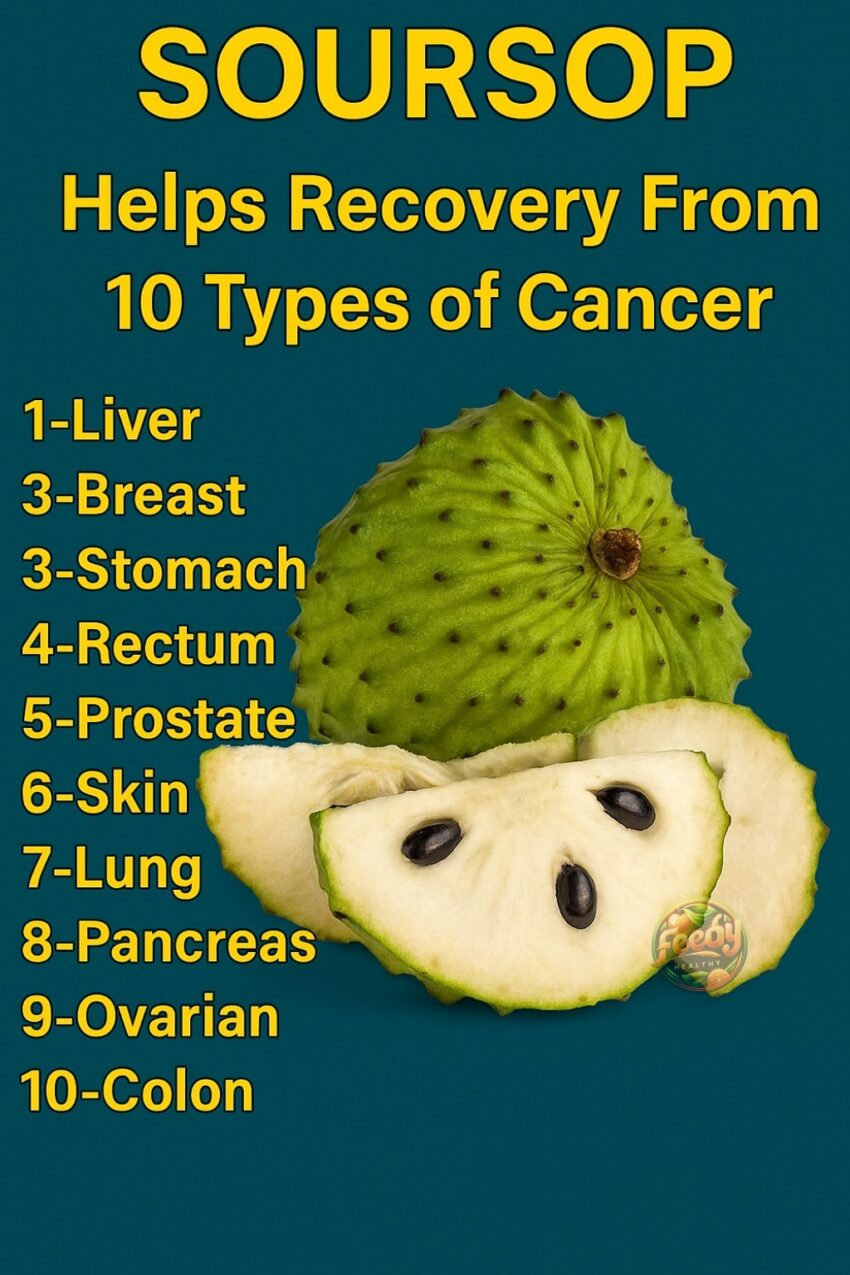Soursop: Nature’s Secret to Restoring Health and Fighting Disease
Soursop (Annona muricata), also known as graviola, guanabana, or custard apple, is a tropical fruit-bearing tree native to the Americas. Beyond its unique flavor—a fusion of strawberry, pineapple, and citrus with creamy coconut undertones—soursop has long been revered in traditional medicine for its potent healing properties. Today, modern research continues to uncover the remarkable ways this fruit supports health and fights disease.
🌿 Nutritional Profile
Soursop is rich in:
- Vitamin C – A powerful antioxidant that supports immune health.
- B Vitamins (especially B1, B2, B3, B6, and folate) – Essential for energy metabolism and neurological function.
- Potassium and Magnesium – Crucial for heart health and muscle function.
- Fiber – Aids digestion and supports gut health.
- Antioxidants (including acetogenins) – Help neutralize harmful free radicals.
🛡️ Health Benefits
1. Cancer-Fighting Potential
The most compelling—and controversial—claim about soursop is its potential to fight cancer. Compounds known as acetogenins, unique to the Annonaceae family, have shown cytotoxic activity in lab studies against various cancer cell lines, including breast, colon, prostate, and pancreatic cancer.
⚠️ Important Note: These studies are preclinical (in vitro or in animals), and there is no solid clinical evidence yet to support using soursop as a treatment for cancer in humans. Consult a healthcare provider before using it medicinally.
2. Immune System Support
Thanks to its high vitamin C content and antioxidant compounds, soursop boosts the immune system, helping the body fend off infections and reduce inflammation.
3. Digestive Health
With its high fiber content, soursop can promote regular bowel movements, support healthy gut bacteria, and aid in detoxification.
4. Anti-inflammatory & Pain Relief
Traditional uses include applying soursop leaf tea or poultices to relieve arthritis, back pain, and muscle discomfort. Some animal studies support its anti-inflammatory effects.
5. Improved Sleep & Anxiety Relief
Soursop leaf tea is widely consumed in Caribbean and South American cultures as a natural sedative. It may help ease anxiety, calm the nervous system, and promote restful sleep.
🍵 How to Use Soursop
- Fresh Fruit: Eaten raw or blended into juices and smoothies.
- Soursop Tea: Brewed from leaves; used traditionally for relaxation and general wellness.
- Capsules/Extracts: Available as dietary supplements—though not FDA-approved as medicine.
- Topical Applications: Crushed leaves used externally in folk remedies for skin and joint issues.
⚠️ Precautions & Potential Risks
- Neurotoxicity Concerns: Long-term consumption of soursop or its extracts has been linked in some studies to neurotoxicity and conditions resembling Parkinson’s disease, particularly when consumed in large amounts.
- Pregnancy: Not recommended during pregnancy due to potential uterine stimulant effects.
- Medication Interactions: May interfere with blood pressure and diabetes medications.
Always consult your healthcare provider before starting any new herbal supplement, especially if you have a medical condition or take prescription medications.
🌱 Conclusion
Soursop is a potent gift from nature with a rich history in traditional medicine. While it holds promising properties—especially as an antioxidant and anti-inflammatory—it should be used wisely and not as a replacement for conventional medical care. As research evolves, soursop may reveal even more of its secrets in restoring health and fighting disease.
Would you like a printable infographic or a version for a blog or social media post?
